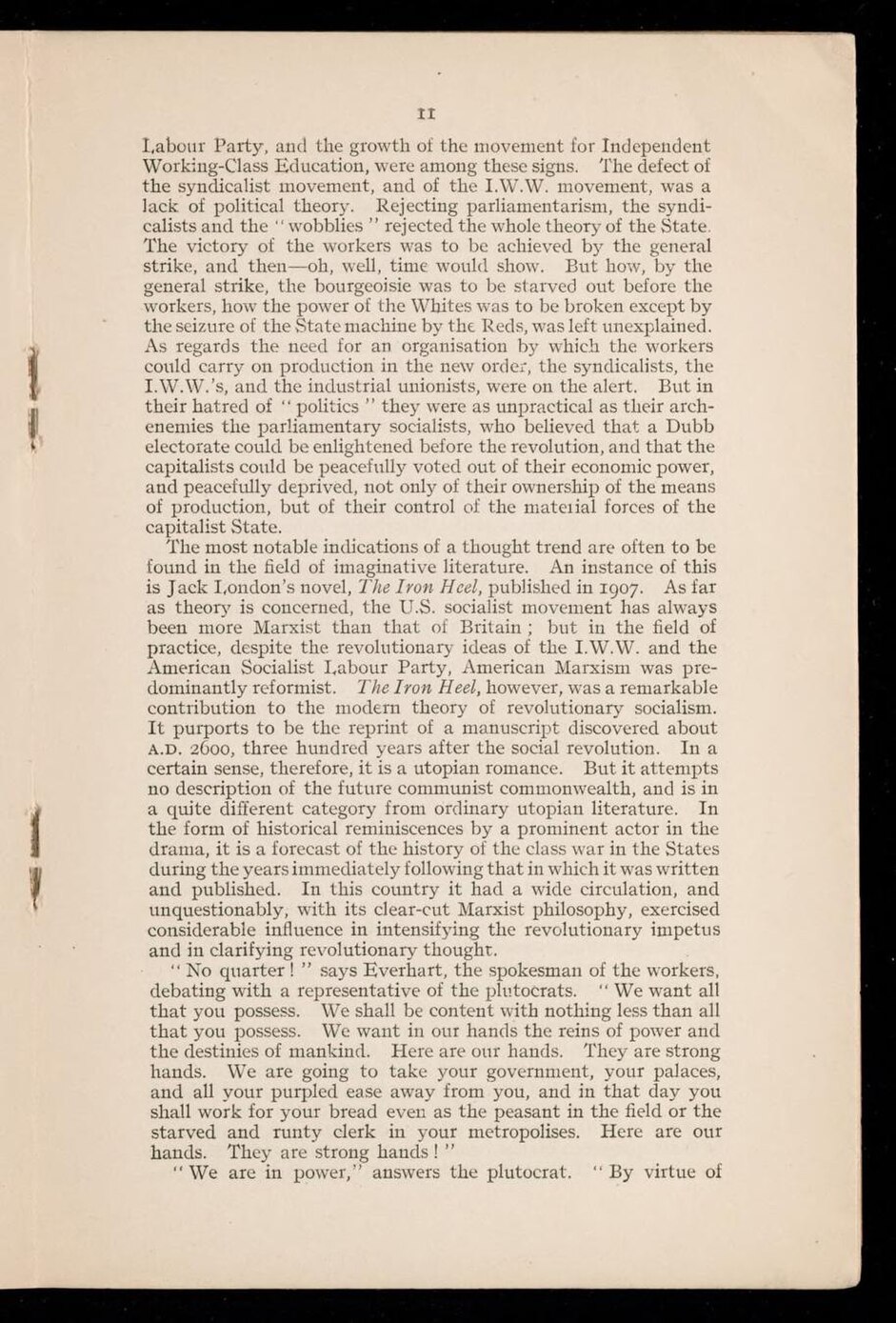11
Labour Party, and the growth of the movement for Independent Working-Class Education, were among these signs. The defect of the syndicalist movement, and of the I.W.W. movement, was a lack of political theory. Rejecting parliamentarism, the syndicalists and the "wobblies" rejected the whole theory of the State. The victory of the workers was to be achieved by the general strike, and the—oh, well, time would show. But how, by the general strike, the bourgeoisie was to be starved out before the workers, how the power of the Whites was to be broken except by the seizure of the State machine by the Reds, was left unexplained. As regards the need for an organisation by which the workers could carry on production in the new order, the syndicalists, the I.W.W.'s, and the industrial unionists, were on the alert. But in their hatred of "politics" they were as unpractical as their arch-enemies the parliamentary socialists, who believed that a Dubb electorate could be enlightened before the revolution, and that the capitalists could be peacefully voted out of their economic power, and peacefully deprived, not only of their ownership of the means of production, but of their control of the material forces of the capitalist State.
The most notable indications of a thought trend are often to be found in the field of imaginative literature. An instance of this is Jack London's novel, The Iron Heel, published in 1907. As far as theory is concerned, the U.S. socialist movement has always been more Marxist than that of Britain; but in the field of practice, despite the revolutionary ideas of the I.W.W. and the American Socialist Labour Party, American Marxism was predominantly reformist. The Iron Heel, however, was a remarkable contribution to the modern theory of revolutionary socialism. It purports to be the reprint of a manuscript discovered about A.D. 2600, three hundred years after the social revolution. In a certain sense, therefore, it is a utopian romance. But it attempts no description of the future communist commonwealth, and is in a quite different category from ordinary utopian literature. In the form of historical reminiscences by a prominent actor in the drama, it is a forecast of the history of the class war in the States during the years immediately following that in which it was written and published. In this country it had a wide circulation, and unquestionably, with its clear-cut Marxist philosophy, exercised considerable influence in intensifying the revolutionary impetus and in clarifying revolutionary thought.
"No quarter!" says Everhart, the spokesman of the workers, debating with a representative of the plutocrats. "We want all that you possess. We shall be content with nothing less than all that you possess. We want in our hands the reins of power and the destinies of mankind. Here are our hands. They are strong hands. We are going to take your government, your palaces, and all your purpled ease away from you, and in that day you shall work for your bread even as the peasant in the field or the starved and runty clerk in your metropolises. Here are our hands. They are strong hands!"
"We are in power," answers the plutocrat. "By virtue of
